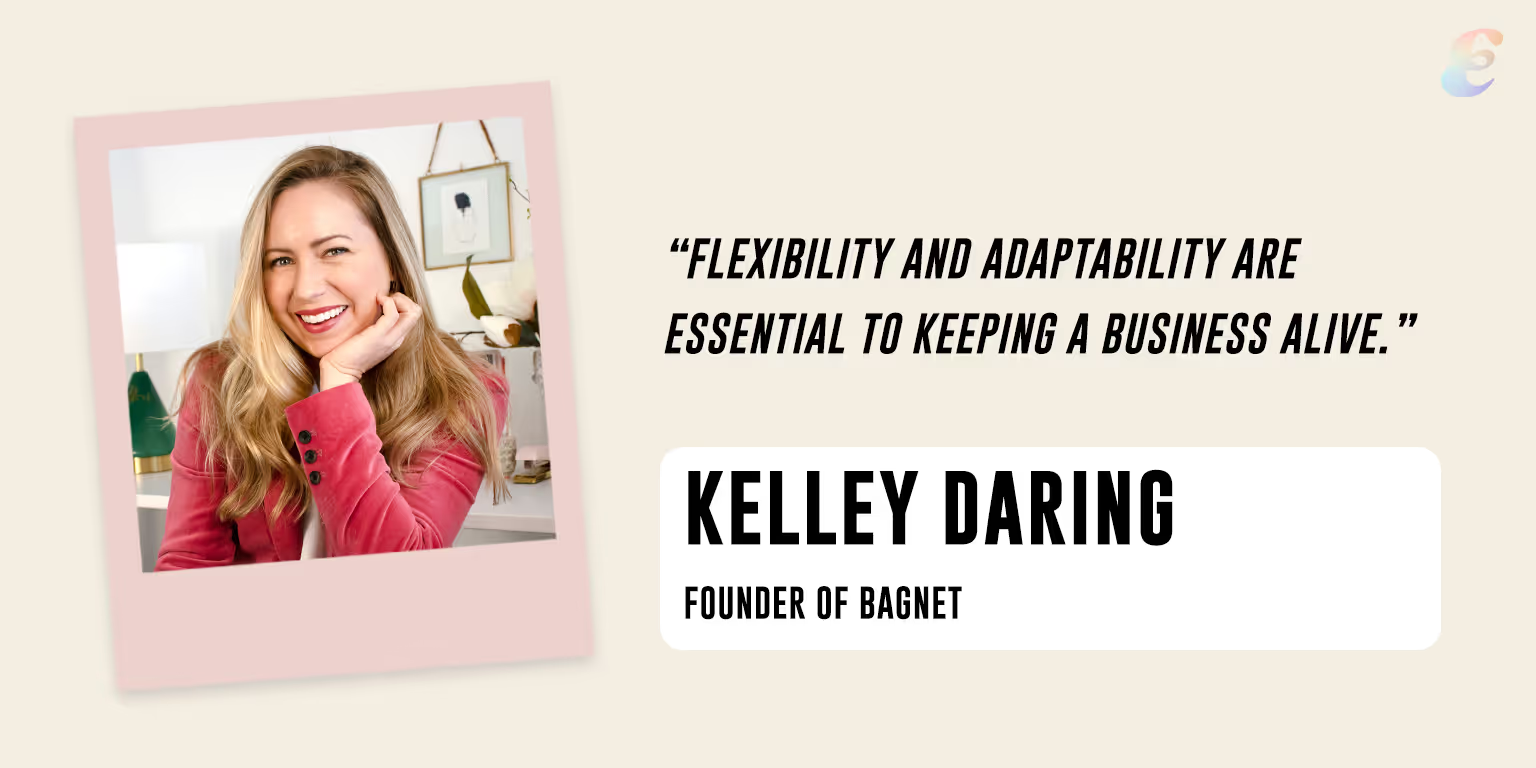
Kelley Daring of Bagnet on the roller coaster of risk and reward, and the biggest lessons she has learned over the years
June 30, 2021
Describe your business in a few words?
Bagnet is a stylish accessory that can be clipped to your handbag’s straps or hardware, and used to magnetically hang your bag from metal surfaces like tables, chairs, bathroom stalls and more to keep your bag off the floor.
What made you take the leap to start your own business?
I first invented Bagnet after years of frustration with missing hooks in public restrooms. I refused to put my bag on a restroom floor (yuck) and got fed up figuring out how to hold my bag while taking care of business. It’s not easy to pull up your pants with one hand! I complained about the problem for years, often saying “why doesn’t someone invent something to solve this problem?”. Then one day it dawned on me – why don’t I invent something to solve this problem? I talked about it for a few weeks until my husband said “would you just make one already?” – so I did, and it worked!
I stitched together a very messy prototype on an old sewing machine my mom had given to me, and slapped a carabiner from the hardware store on there. I put that ugly, messy thing on my bag and carried it everywhere for a few weeks, testing it on every piece of metal I could find. When I was sure that it worked, I got to work filing the utility patent. Once filed, I felt comfortable introducing my idea to people.
I began making more and more Bagnets by hand and selling them at craft fairs – I wasn’t selling a whole lot of Bagnets, but I wasn’t deterred. I believed that I just wasn’t pitching the product correctly or getting it in front of the right audience. For two years, I continued to hone my pitch and find new ways to showcase Bagnets like bringing a portion of a metal restroom stall to craft fairs! I bought old art frames, painted them white, and filled them with sheet metal to display my products. I hung them from the booth frame, which allowed my Bagnets to be visible from far outside my booth, and compelled women to stop by – even just to find out what I was selling. I created postcards that told the product story and handed them out to everyone. My husband set up a GoPro camera and we recorded full days in the booth. We used that footage to review and evaluate traffic patterns, the success of our pitch and common questions and objections.
Finally, with all these optimizations I brought in $1,200 in sales at a craft fair and I knew then that I had proof of concept. This is when I quit my full-time job, giving up the security of an 8 year position to pursue the growth of Bagnet full time.
What was your background prior to starting your own business?
Before I started Bagnet I was working in commercial furniture (think desks and cubicles in offices). I got my BA in Interior Design and worked in a hybrid design/sales role for the Steelcase dealer in Sacramento. I worked there for nearly 8 years, and it was in the last year that I invented, patented, and started making and selling Bagnets as a side hustle. Prior to that I had attempted to start a couple of other businesses including a residential interior design company, and a boutique dog supply website.
I’ve had a steady job since I was 12 years old. I worked as a waitress starting at 15, and put myself through college working full time in restaurants. I’ve often worked two jobs at a time, doing things like tutoring low-income kids for supplemental income. I’ve always been a hard worker and am happiest when I have a job (or many jobs) to do. I think my strong work ethic is central to my character and personality.

Did you always know you wanted to be an entrepreneur?
In my 20s I was convinced that I should never own my own company because I knew that it would dominate my life. Even then, I knew myself well enough to know that I would work endlessly to have a successful business. Then in my 30s I accepted that work is what gives me the most fulfillment and the greatest sense of purpose. Once I accepted that, being an entrepreneur became inevitable and I became comfortable with the idea of owning a business.
Take us back to when you first launched your business, what was your marketing strategy to get the word out and did it go as planned?
When I first launched the business, I was selling handmade Bagnets at local craft fairs. I signed up for a booth at a craft show in a local church, but the only Bagnets I sold at that craft show were to family and friends. I was not deterred, though. I signed up for a booth at a 2 day street fair in a small town an hour south of Sacramento. I made more Bagnets (convinced I would need them because I’d sell so many!) and my husband and I packed up the car for the first day of our first street fair. I did not sell a single Bagnet that day, but I still was not discouraged. “It’s just not the right audience” is what I told my husband, and we packed up our booth and decided not to return for day 2.
Eventually, I figured out who the right audience was and how to best explain what a Bagnet is and I was selling far more Bagnets at the fairs. However, it wasn’t until I launched my website with the information I had optimized to sell at craft fairs that I really saw scale. Through initial organic social media and a little bit of paid social media, Bagnet took off.
We always learn the most from our mistakes, share a time with us that you made a mistake or had a challenging time in business and what you learned from it?
One of my early challenges was finding a scalable solution for making Bagnets. I was making thousands of Bagnets by hand before I finally started looking for help with manufacturing my products. First, I hired a local seamstress to take on some of the Bagnet-making. That didn’t last long before I realized it was not a viable solution. I then researched and identified three companies in Los Angeles that I thought could do the job. I flew down and met with all three companies, and I signed a deal with one that made luxury leather goods and seemed promising. When I went to place my first order with that company, I was told that my minimums would be much higher than we had initially agreed upon. I refused to buy the higher minimum quantity, so they made the order as originally promised. When I got that first order I was crestfallen. The workmanship was bad, with uneven stitching and unfinished edges, and with gold foil logos that were crooked and flaking off. I ended up selling that batch of Bagnets at 40% off, and I never placed another order with them. I set off on my search for yet another manufacturer, and that’s when I found the company that still makes our leather styles today. I learned that finding partners you trust and forging strong relationships with your vendors is vital to the success of a product-based business.

What is the accomplishment you are the most proud of to date?
In November of 2017 I hit 1MM in YTD revenue for the first time, and ended the year with 1.6MM in revenue. The year before I had done 30K in annual revenue. Knowing that I had invented a product and scaled it that much in a year was so surreal and awesome.
When hiring for your team, what is your go-to interview question? Please share any hiring tips you can share from your experience?
When I’m hiring, I’m looking for individuals who have knowledge and experience that supplements my own. I ultimately want to hire an expert, give them the tools they need, then get out of their way so they can do what they do best. With that in mind, I ask where they think we have the most opportunity for growth and improvement, and what they believe might be limiting us. If their answers fall outside of my wheelhouse I usually feel confident that I’ve found someone who can bring things to the table that I cannot.
How has your business or industry been impacted by the COVID-19 pandemic?
As a small business we were already pretty agile and flexible, but we definitely became even more nimble due to Covid. We went from being in the office 5 days a week to permanently working from home, and a 4 day work week. Disruptions and delays in supply chains have definitely been challenging and we’ve had to get creative in how and when we place orders and have them shipped. Raw material prices have increased quite a bit and we’ve had to offset those costs internally in various ways.
What's next for your business? What can we expect to see over the next few years?
I have ideas for new products, new strategies, new sales channels, and even new businesses. To give you some hints, I would love for Bagnet to be a comprehensive bag-hanging solution, one that works in all situations and on nearly all objects - not just metal. I would love for our customers to be able to pick up one (or a few) at their favorite stores. I would love to work with brands like Disney, professional sports teams, and universities on branded Bagnets.
What is the biggest lesson you have learned in 2020?
Flexibility and adaptability are essential to keeping a business alive, and that having a team that works remotely can actually be more productive and efficient than being in office!
What do you know now that you wish you knew when you were first starting your business?
That it’s worth it to wait until you’ve found the perfect person for a position, rather than rushing to fill it as quickly as possible.
How have you managed to stay grounded this year?
It’s been extremely challenged to stay grounded and focused through 2020 and 2021. My attention (and my team’s attention) was constantly upended by Covid and political and social events. But I actually found that work kept me grounded – it gave me something to focus on – it was almost an escape as crazy as that sounds!
Do you believe in work/life balance? What are some of your best tips?
Absolutely, although I don’t know if I should be giving any tips! I start working at 6am and typically work until 6pm. During those hours I take frequent mini-breaks: I’ll walk the dog, do a 30 minute workout, eat lunch, and take a shower – just to make sure I don’t sit all day and so that I don’t burn out. When my workday ends, I clean up my desk, turn off the lights, and don’t go back into my office until the next morning. I’ll have a glass of wine with my husband, make dinner, then read or watch a movie. I might think about or talk about work in the evening, but for the most part I leave the day behind me so that I’m fresh the next morning.
What's something our audience would be surprised to learn about you?
I put myself through college, working full time at multiple jobs, and didn’t get my BA until I was 28 years old.
What are your top 3 tips to stay productive each day?
- My top tip is a change I made just a couple of months ago and it has made such a big difference in my productivity: turn off your email notifications. I used to get the standard ding and desktop pop-up for every message that came in. When I hear that sound and see that pop-up, I can’t help but look to see what it is, and it completely distracts me from whatever I’m doing. Oftentimes I’ll read and respond to the email on the spot, just to get it done. I turned off all email notifications and now I can actually focus on and complete tasks without any distractions, which means they get done much faster. I check my email every couple of hours when I’m between tasks and I’m soooo much more productive this way.
- Take lots of mini-breaks so you don’t burn out. A 15-minute walk with some good music works wonders for keeping the creativity flowing!
- Make lists! I start every day with an updated to-do list and I stick to that list so that I don’t get distracted and off-course.
What does being an Entreprenista mean to you?
For me it’s about opportunity, risks, and responsibility. It means actively striving to create opportunities within which I and my business can thrive, taking calculated risks and understanding that nothing is for sure, and taking full responsibility for anything and everything that happens. It’s like being on a roller coaster of risk and reward!

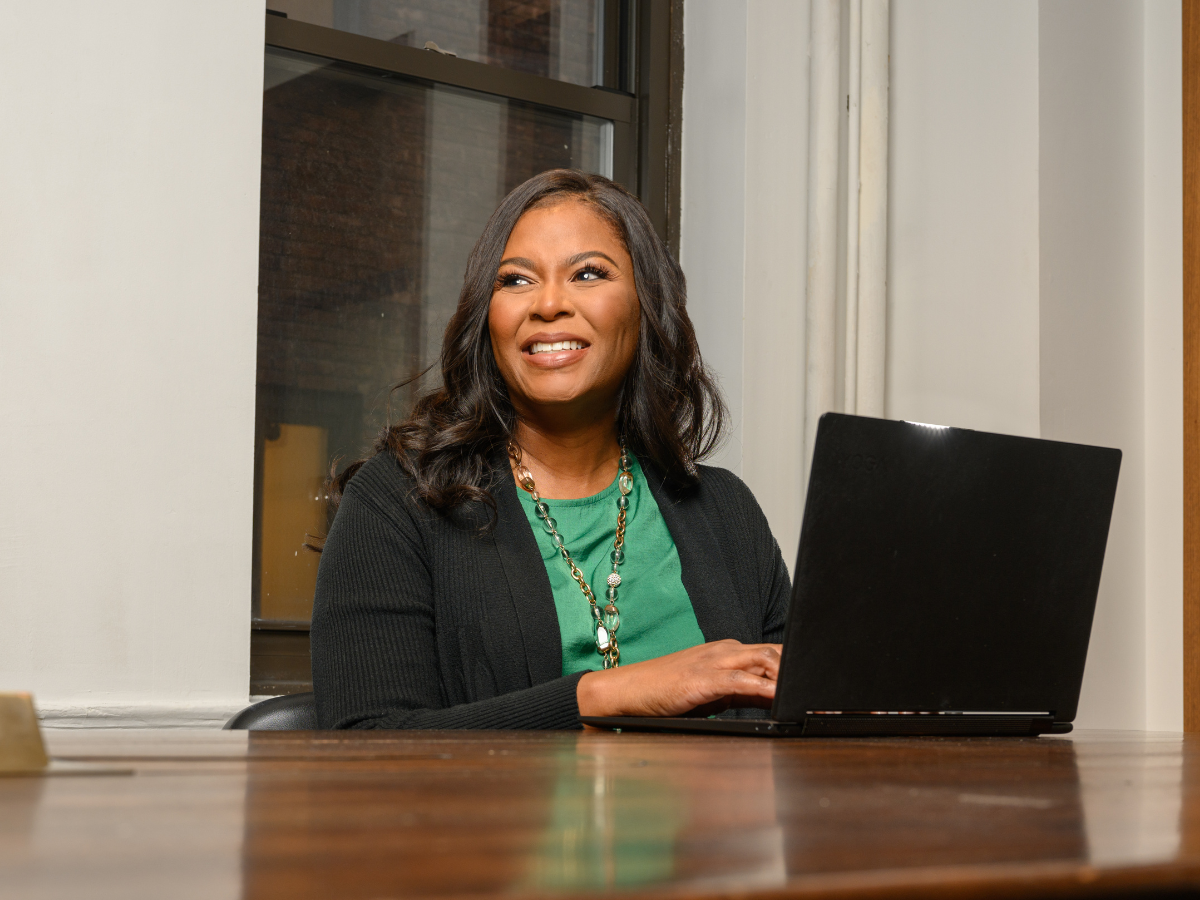
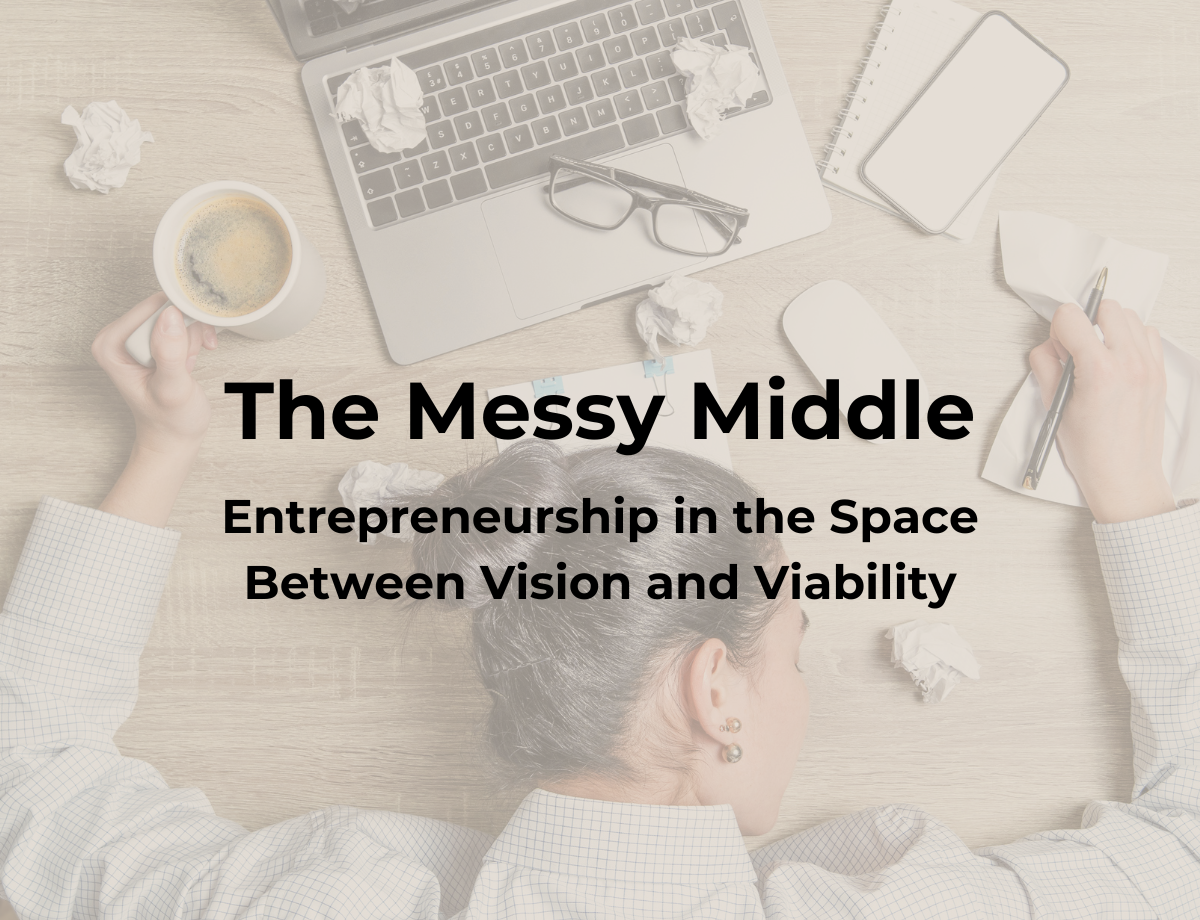
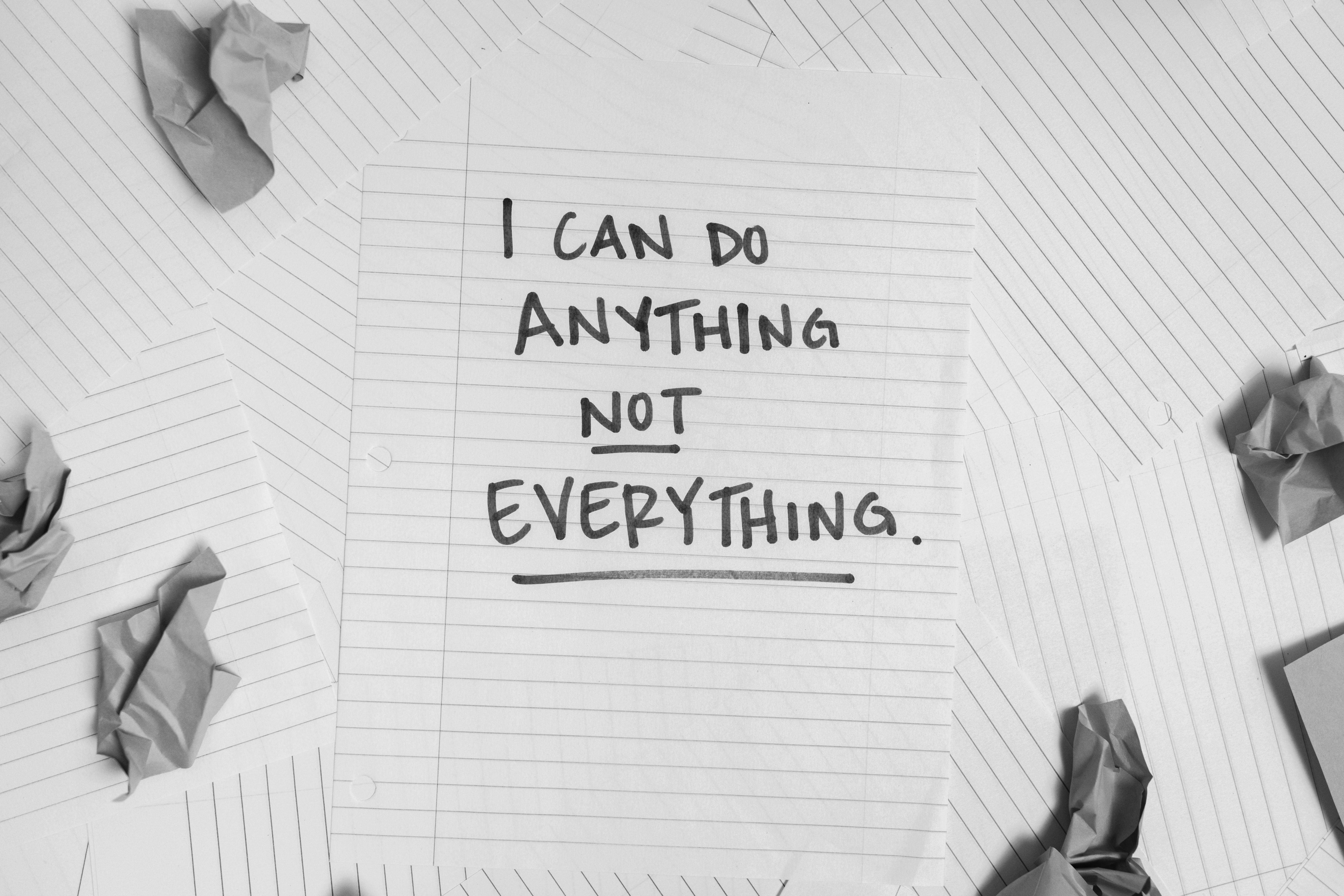



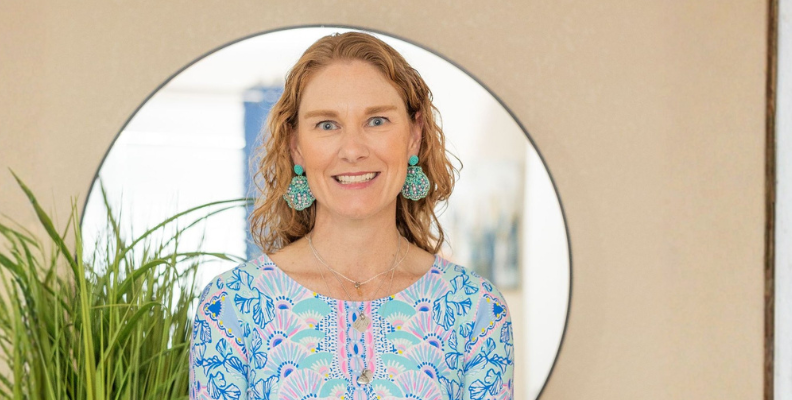
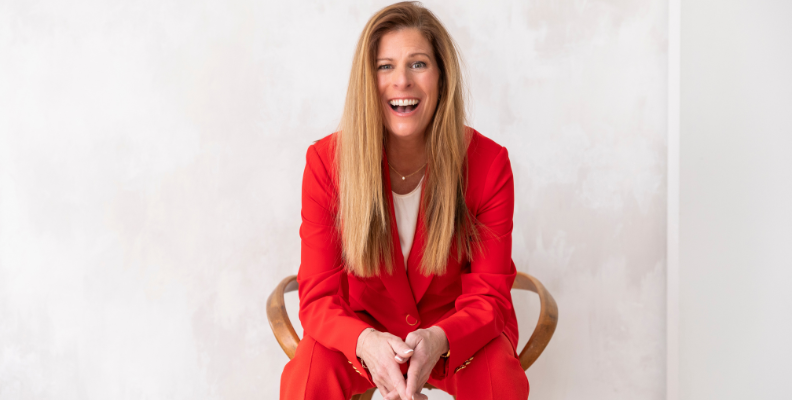
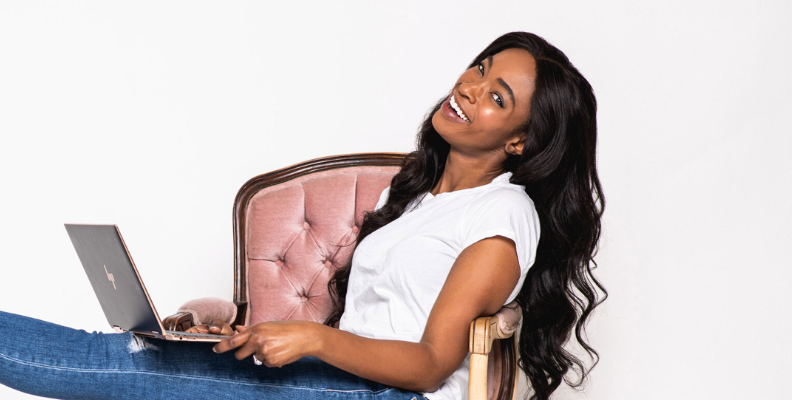
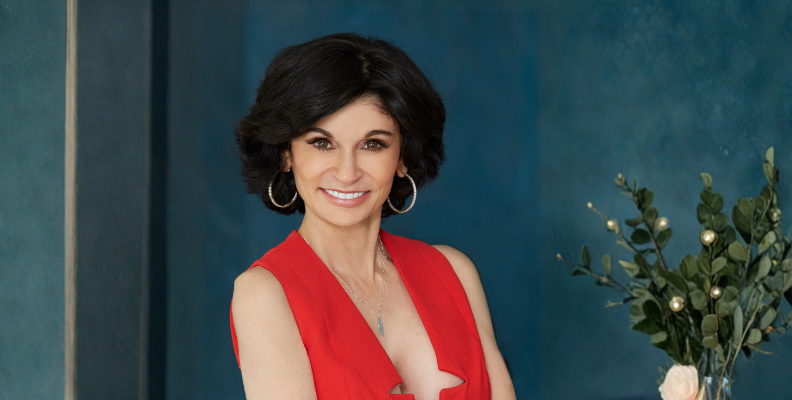


.png)
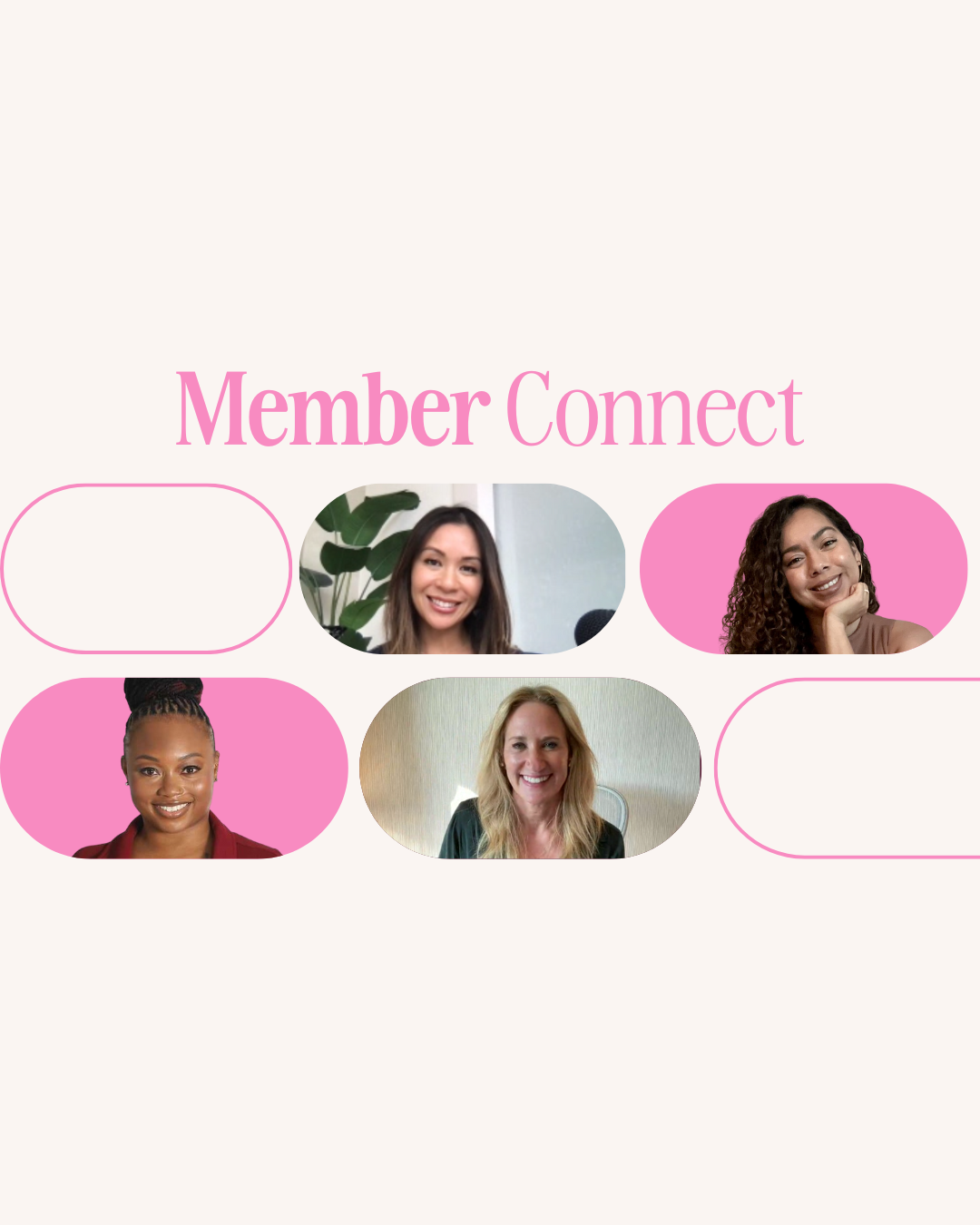
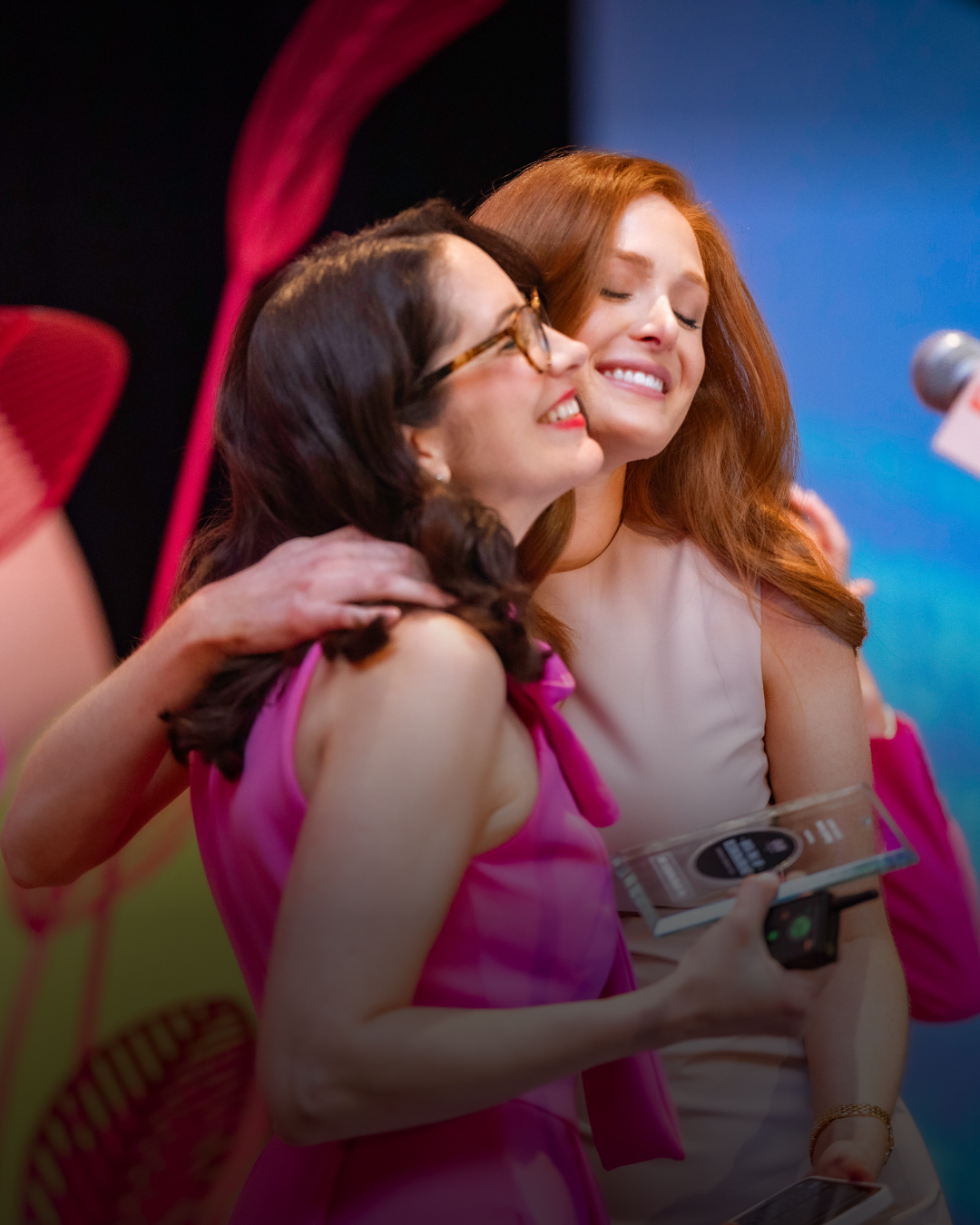




.avif)

